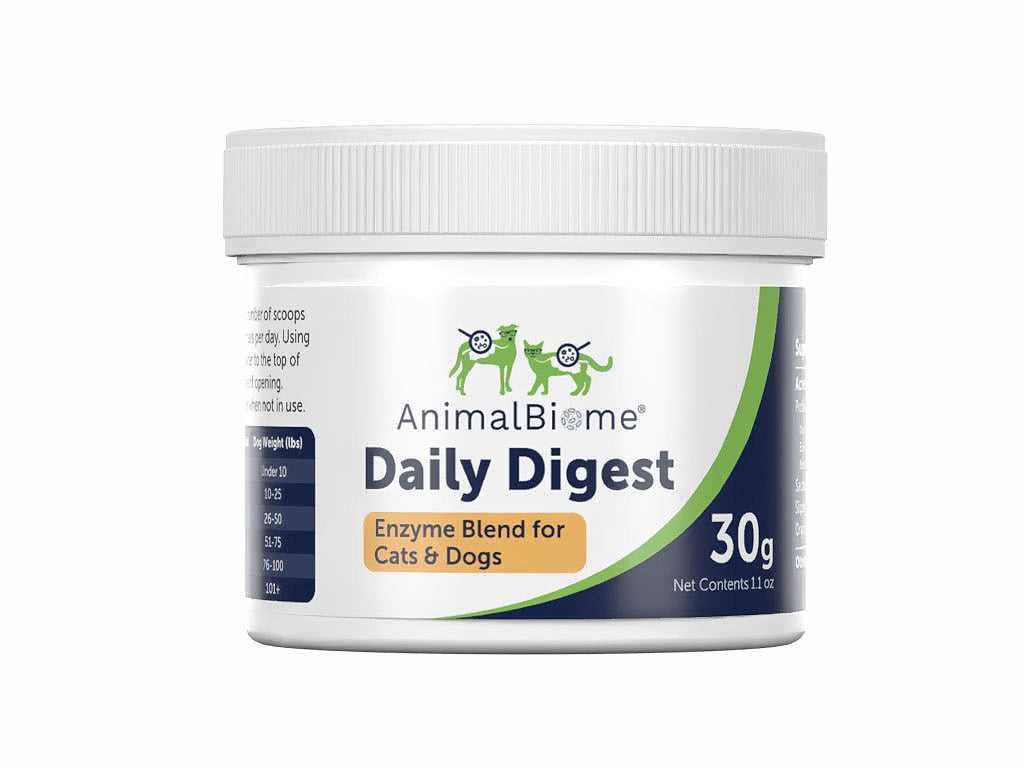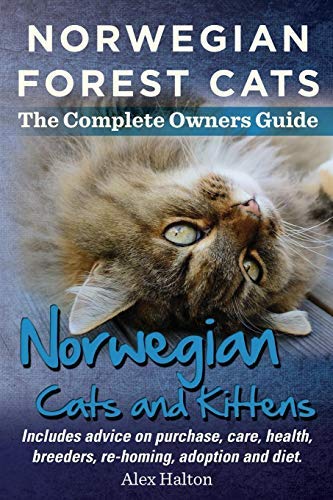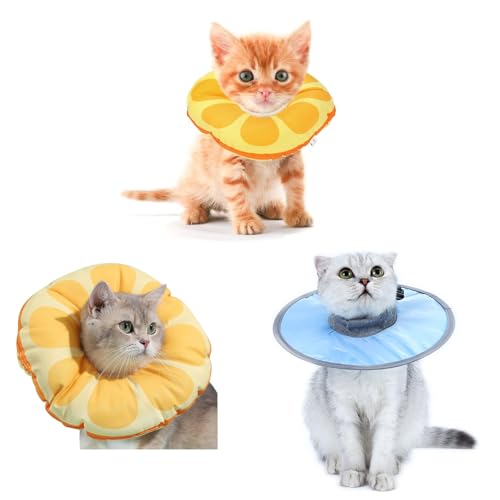




If you’re seeking ways to improve your furry friend’s digestion, consider incorporating specific supplements into their diet. These products can help alleviate issues such as gas, bloating, and irregular bowel movements, ensuring your pet feels comfortable and healthy.
This article offers a detailed overview of various products designed to support your cat’s gut health. You’ll find information on the ingredients to look for, the benefits they provide, and how to choose the right option for your feline companion. Pet owners will find this guide particularly useful, especially those with cats prone to digestive disturbances.
We will explore several recommended products, their unique features, and the specific ailments they address. By the end of this piece, you will have a clearer understanding of which supplements may be most beneficial for your cat’s digestive comfort and overall well-being.
Best Digestive Aids for Felines
Choosing the right supplements can significantly enhance your feline’s nutritional intake. These products are designed to support the breakdown of food, making nutrients more accessible and promoting overall health.
Look for formulations that include a variety of natural components such as proteases, lipases, and amylases. These substances play a crucial role in breaking down proteins, fats, and carbohydrates respectively, allowing your pet to better absorb essential nutrients.
Considerations for Selection
When selecting supplements, it’s important to evaluate specific characteristics:
- Source: Natural sources are often more beneficial than synthetic alternatives.
- Formulation: Ensure the blend is tailored for feline digestion, as their systems differ from other animals.
- Ingredients: Look for additional beneficial elements like probiotics and prebiotics to further enhance gut health.
Consult with your veterinarian to determine the most appropriate options for your pet’s unique dietary needs. Monitoring your cat’s response after introducing any new product is essential to ensure its suitability.
Understanding the Role of Digestive Enzymes in Feline Health
Proper breakdown and absorption of nutrients is fundamental for feline well-being. Cats possess a unique digestive system that requires specific biological catalysts to facilitate the processing of food efficiently. These catalysts enhance the breakdown of proteins, carbohydrates, and fats, ensuring that your feline friend receives the necessary nutrients from their diet.
Many cats, particularly those with certain health issues or dietary restrictions, may struggle with digestion. In such cases, supplementation with biological catalysts can help support their digestive processes. By enhancing nutrient absorption, these supplements can alleviate gastrointestinal discomfort and promote overall health.
Benefits of Biological Catalysts
- Improved Nutrient Absorption: Enhances the breakdown of food components, allowing more nutrients to be absorbed.
- Reduced Gastrointestinal Discomfort: Alleviates bloating, gas, and other digestive issues.
- Support for Specific Diets: Assists in the digestion of specialized or novel protein sources.
It is essential to consult a veterinarian before introducing any supplements into your cat’s diet. A professional can assess your pet’s specific needs and recommend suitable products tailored for their health status. Monitoring your feline’s response to supplementation is crucial, as individual reactions may vary.
In conclusion, understanding the role of biological catalysts can significantly impact your cat’s health. By ensuring proper digestion and nutrient absorption, these supplements can contribute to a happier and healthier life for your furry companion.
Natural Sources of Digestive Support for Felines
Felines can greatly benefit from natural ingredients rich in substances that aid in breaking down food. One such source is raw meat, which contains proteins that are easier for them to digest. Incorporating fresh, high-quality meat into their diet supports their natural digestive processes.
<p Another excellent option is fermented foods like plain yogurt or kefir. These products are packed with beneficial bacteria that promote a healthy gut microbiome, enhancing nutrient absorption and overall well-being.
Additional Sources to Consider
Other natural options include:
- Pineapple: Contains bromelain, an enzyme that helps break down proteins.
- Papaya: Rich in papain, which aids in protein digestion and can help with gastrointestinal discomfort.
- Seaweed: Provides various nutrients that support overall digestive health.
Integrating these ingredients into a feline’s diet can improve their digestive efficiency and support their health. Always ensure that any new food is introduced gradually to monitor for any adverse reactions.
Comparing Commercial Digestive Enzyme Supplements for Cats
When evaluating various commercial supplements aimed at improving digestive health in felines, several factors come into play. The ingredient composition is crucial, as different products may contain a unique blend of proteins that assist in breaking down food. Additionally, the source of these compounds can vary, impacting their efficacy and suitability for specific dietary needs.
It’s essential to consider the delivery method of these supplements. Some formulations are available in powder form, while others come as capsules or chews. The preference of the cat and ease of administration can significantly influence the success of incorporating these products into their routine.
Key Factors to Consider
- Ingredient Quality: Look for high-quality sources of proteases, lipases, and amylases.
- Source of Ingredients: Natural versus synthetic sources can affect digestion and absorption.
- Palatability: Choose options that cats find appealing to encourage regular use.
- Dosage Recommendations: Follow guidelines provided to ensure safe and effective use.
Comparisons should also extend to the intended purpose of each supplement. Some are formulated for general digestive support, while others target specific issues, such as food intolerances or post-surgery recovery. Reading reviews and seeking veterinary advice can provide additional insights into the performance and reputation of different products.
| Factor | Consideration |
|---|---|
| Ingredient Quality | High-quality sources enhance effectiveness. |
| Source | Natural ingredients may be better absorbed. |
| Administration | Choose a form that suits your cat’s preferences. |
| Purpose | Select based on specific health needs. |
Ultimately, careful consideration of these aspects will aid in selecting the right supplement for enhancing your pet’s digestive function. Regular monitoring of your cat’s response to the chosen product can provide further guidance on its effectiveness and suitability.
Signs Your Cat May Benefit from Digestive Support
If your feline companion exhibits signs of discomfort after meals, it may indicate a need for additional digestive assistance. Observing your cat’s behavior can provide valuable insights into their digestive health.
One common symptom is frequent vomiting, especially shortly after eating. If your cat often regurgitates food, it could suggest that they are struggling to properly break down their meals. Another indicator is changes in appetite; a sudden decrease or increase in food intake may signal digestive issues.
Additional Indicators of Digestive Disturbance
In addition to vomiting and appetite changes, consider the following signs:
- Diarrhea or Soft Stool: Consistently loose stools may point to insufficient nutrient absorption.
- Flatulence: Excessive gas can indicate an imbalance in the digestive system.
- Weight Loss: Unexplained weight loss despite a normal diet can signify malabsorption.
- Foul Breath: Bad breath can be a sign of digestive disturbances or imbalances.
Monitoring your cat’s behavior and physical condition is crucial. If you notice any of these symptoms persisting, consulting a veterinarian is advisable to explore potential dietary adjustments or supplements that could enhance their digestive function.
How to Introduce Digestive Support into Your Cat’s Diet
Begin by gradually incorporating the digestive aid into your feline’s meals to avoid any gastrointestinal upset. Start with a small amount of the product mixed into their regular food. Observe your pet’s reaction over a few days before increasing the dosage.
Always consult your veterinarian before making changes to your cat’s diet. They can provide guidance on the appropriate type and amount of supplement based on your cat’s specific health needs.
Steps for Introduction
- Choose a high-quality product recommended by your veterinarian.
- Mix a small amount with their usual food, ensuring it’s well blended.
- Monitor your cat for any signs of discomfort or changes in behavior.
- Gradually increase the amount if no adverse reactions occur, following the product guidelines.
- Maintain regular check-ins with your vet to assess your cat’s health and adjust as needed.
Using a measured approach will help your pet adjust to the new addition without stress. Keep an eye on their digestion and overall well-being during this transition.
Potential Side Effects of Digestive Supplementation in Cats
While supplementation can provide significant benefits, it is crucial to be aware of potential adverse reactions in felines. Some of the most common side effects include gastrointestinal disturbances, such as diarrhea, vomiting, and gas. These issues may arise due to an improper dosage or sensitivity to specific components within the product.
Additionally, allergic reactions can occur, manifesting as itching, swelling, or respiratory difficulties. Monitoring your pet closely after introducing any new supplement is advisable to ensure their well-being.
Common Reactions to Watch For
- Gastrointestinal upset
- Vomiting
- Diarrhea
- Flatulence
- Allergic reactions (itching, swelling)
- Changes in appetite
Consult a veterinarian if any concerning symptoms arise. They can provide guidance on appropriate dosages and alternative options if needed.
In conclusion, while supplementation can enhance your feline’s digestion, awareness of potential side effects is essential. Always approach new products with caution and seek veterinary advice to ensure a safe and beneficial experience for your pet.
Best digestive enzymes for cats
Features
| Part Number | 79904832 |
| Color | No Color |
| Size | 1 lb Powder |
Features
| Part Number | OG300 |
| Model | OG300 |
| Warranty | In Clover Optagest Organic Prebiotic Natural Enzyme Powder Healthy Stools Less Gas No Foreign probiotics. Daily Digestive Immune Support Dogs Cats. … (10.5 oz) |
| Color | Prebiotic Natural Enzyme Powder |
| Size | 10.5 oz |
Features
| Part Number | PROVDC80 |
| Model | PROVDC80 |
| Warranty | 2 year warranty |
| Color | blue |
| Size | 80 Count |
Features
| Part Number | DEU1 |
| Model | DEU1 |
| Is Adult Product | |
| Size | 180 Count (Pack of 1) |
Features
| Part Number | RC471550 |
| Model | RC471550 |
| Warranty | With nearly 50 years of scientific research and observation, Royal Canin continues to deliver targeted nutrition to feed every pet’s magnificence. Not satisfied? Then neither are we. Our formulas are 100% satisfaction guaranteed. (Just contact us for more details.) |
| Size | 3 Ounce (Pack of 24) |
Features
| Part Number | 79903662 |
| Model | 79903662 |
| Color | No Color |
| Size | 1 lb Powder |
Video:
FAQ:
What are the signs that my cat may need digestive enzymes?
If your cat is experiencing digestive issues, there are several signs to watch for. Common indicators include vomiting, diarrhea, excessive gas, or changes in appetite. You might also notice weight loss or poor coat condition. If your cat seems lethargic or shows discomfort after eating, it may be a sign that their digestive system is struggling. Consulting a veterinarian can help determine if digestive enzymes are necessary and suitable for your cat.
How do I choose the right digestive enzymes for my cat?
Choosing the right digestive enzymes for your cat involves several factors. First, it’s crucial to consult with a veterinarian who can assess your cat’s specific health needs. Look for enzymes that are specifically formulated for felines, as their digestive systems differ from those of other animals. Ingredients to consider include proteases, lipases, and amylases, which break down proteins, fats, and carbohydrates, respectively. Additionally, consider the form of the enzyme—whether it’s a powder, capsule, or chewable. Reading product reviews and choosing reputable brands can also aid in making an informed decision.










